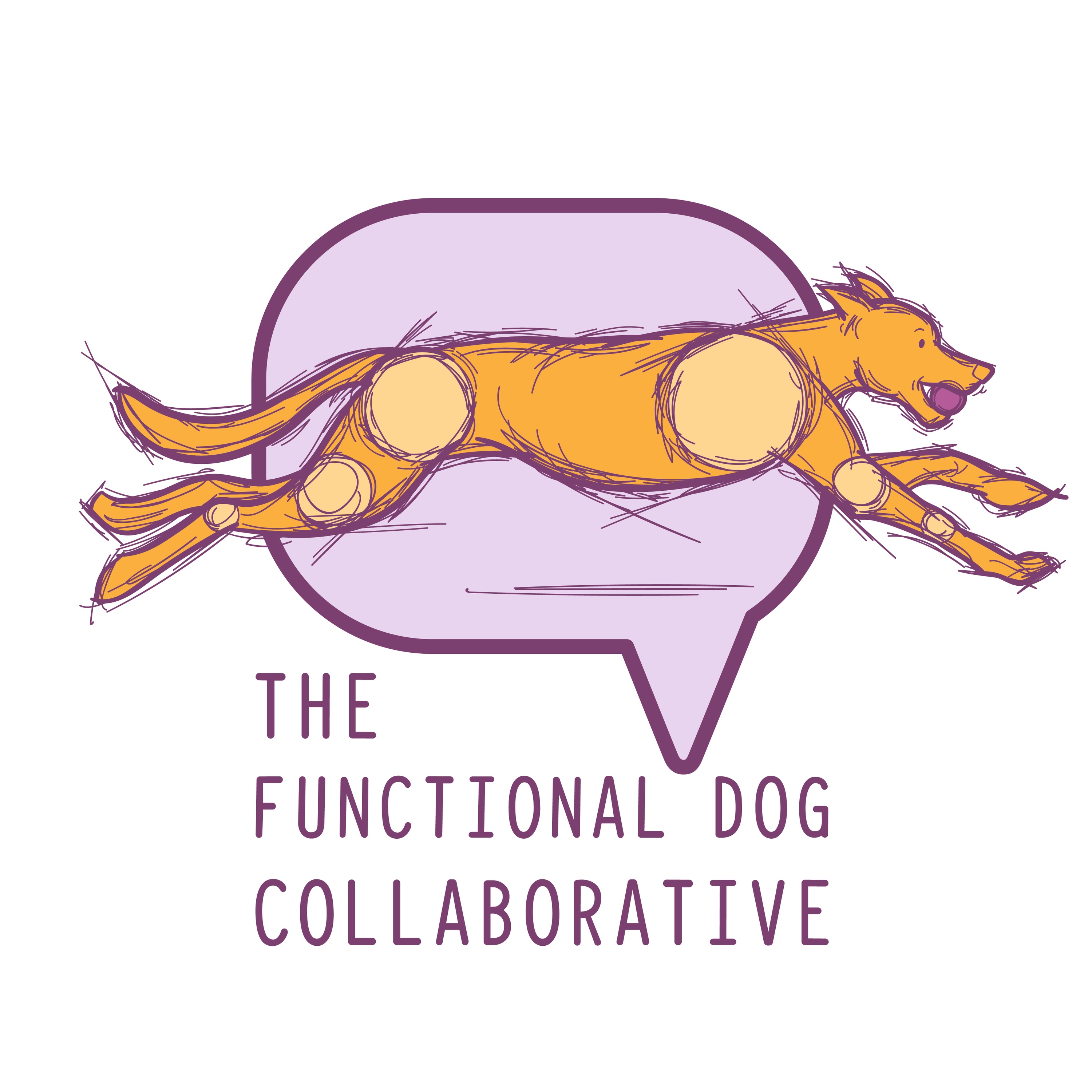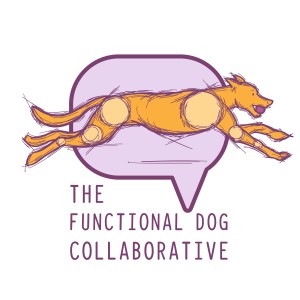
238.7K
Downloads
70
Episodes
The Functional Breeding Podcast is about how to breed dogs for function and for health, behavioral and physical. It is brought to you by the Functional Dog Collaborative, a non-profit organization founded to support the ethical breeding of healthy, behaviorally sound dogs. The FDC’s goals include providing educational, social, and technical resources to breeders of both purebred and mixed breed dogs, helping us all learn more about how to breed good companions who are fit for sports or work. You can find out more at functionalbreeding.org or at the Functional Breeding facebook group, which is a friendly and inclusive community.
Episodes

Tuesday Nov 11, 2025
Behavioral genetics of herding breeds: article discussion with Sarah Stremming
Tuesday Nov 11, 2025
Tuesday Nov 11, 2025
This episode, I am being interviewed by Sarah Stremming about a recent scientific article about the genetics of behavior in herding breeds and specifically in border collies. I talk about the study's methods and what it all means, and Sarah grounds it in her deep practical experience with herding dogs. Sarah has been on the podcast so many times that she hardly needs an introduction but for new listeners, she is an internationally known dog behavior consultant and speaker. You can learn more about her at sarahstremming.com and I encourage you to check out her podcast, cog dog radio, where this episode is being jointly released.
On a personal note I want to let you all know that while I haven't been releasing episodes, this podcast has been very much on my mind. I continue to suffer from chronic fatigue which makes this kind of effort really difficult for me - after recording this episode I was unable to work for the rest of the day. I'm improving but it's very slow going. I am deeply grateful to those on Patreon who continue to support the podcast during this hiatus - that support goes straight to the Functional Dog Collaborative and is much needed and appreciated.
Jeong, Hankyeol, Elaine A. Ostrander, and Jaemin Kim. "Genomic evidence for behavioral adaptation of herding dogs." Science Advances 11.18 (2025): eadp4591. https://www.science.org/doi/full/10.1126/sciadv.adp4591

Sunday Jul 20, 2025
Laura Sharkey, PhD, KPA CTP, SDC: What puppies are capable of
Sunday Jul 20, 2025
Sunday Jul 20, 2025
This week I'm talking to Dr Laura Sharkey, dog trainer turned dog breeder, who runs the Bosun Dog Project. This project produces lovely mixed breed dogs who are bred to fit well into homes as companions. This episode was actually recorded in person with me and Laura in the same room. We started talking about what we would talk about and then I realized she had already said some really interesting stuff, so I hit record and prompted her to start over, and away we went, talking about some of the fascinating discoveries she's made with her analytical brain while raising many litters of foster puppies and five litters of Bosun puppies! If you want to know more about the Bosun Dog Project, you can go to bosundogproject.com.

Thursday Jun 19, 2025
Micah Halpern, PhD: Canine Genetic Testing
Thursday Jun 19, 2025
Thursday Jun 19, 2025
This week I'm talking with Dr Micah Halpern, a geneticist who has worked with many species including zoo animal population health, and is currently the pricipal scientist and owner of GenSol Diagnostics. Micah and I got nerdy about genetic testing for canine health and other traits - what are some of the different technologies involved, and how do we think about what "accurate" means in terms of results?
I've had a long break from recording podcast episodes and I'm coming back gradually. My series of unfortunate injuries seem to be coalescing into chronic pain that makes working difficult. The Functional Dog Collaborative is a high priority for me but sometimes I do have to take a break from this podcast while I recover a bit, and this was one of those times. I hope to have episodes coming out more regularly, but also a bit more slowly than previously, for a while, while I improve and ramp them back up. I appreciate your patience.

Tuesday Mar 25, 2025
Dr. Hille Fieten, Copper Toxicity
Tuesday Mar 25, 2025
Tuesday Mar 25, 2025
Dr. Hille Fieten is veterinary researcher and clinician specializing in internal medicine. She is is the coordinator of the Center for Expertise in Genetics and Veterinary Medicine at Utrecht University. I have received multiple requests to talk to her about her research into the genetics of copper toxicity in dogs. Some of her research has been used for new genetic tests, and the dog loving community is asking how to interpret these tests. Buckle up for a lot of information coming at you!

Tuesday Mar 04, 2025
Tuesday Mar 04, 2025
A new paper, "The prevalence of behavior problems in dogs in the United States," is getting people upset - is it true that 99.78% of owners think their dog has a behavior problem? That's not actually what the paper says, and I'm here with Sarah Stremming of Cog Dog Radio for a joint episode. We talk through the paper's findings and what it means for those of us trying to make the world a better place for dogs.
Beaver, Bonnie V. "The prevalence of behavior problems in dogs in the United States." Journal of Veterinary Behavior 76 (2024): 34-39.
Hsu, Yuying, and James A. Serpell. "Development and validation of a questionnaire for measuring behavior and temperament traits in pet dogs." Journal of the American Veterinary Medical Association 223.9 (2003): 1293-1300.

Tuesday Feb 04, 2025
Dr. Paula Boyden: Puppy Smuggling in the UK
Tuesday Feb 04, 2025
Tuesday Feb 04, 2025
Dr. Paula Boyden is the veterinary director of Dogs Trust UK, an animal welfare organization that, among many other things, investigates illegal importation of animals to the UK. Paula and I talked about puppy smuggling - why it happens, how it happens, the animal welfare implications, how hard it is for puppy seekers to detect it, and potential solutions to stop it.
You can learn more about Dogs Trust UK at https://www.dogstrust.org.uk. You can find the puppy smuggling reports that Paula and I talked about at https://www.dogstrust.org.uk/about-us/what-we-do/our-views/puppy-smuggling .

Wednesday Jan 22, 2025
Sara Reusche: Breeding Sports Lite Dogs
Wednesday Jan 22, 2025
Wednesday Jan 22, 2025
This week I welcomed back Sara Reusche (she/her)! Sara is a CBCC-KA, CPDT-KA, CVT, and owns Paws Abilities Dog Training, LLC in Southeast Minnesota and the Twin Cities metro. Sara and I talked about what we mean by the term sports lite versus sport bred, what the sports lite dogs she's bred look like - and how everyone deserves an easy dog, even those who want to do sports. To learn more about Sara's training program go to https://pawsabilitiesmn.com/ (they have online offerings so you don't have to be local!) and to learn more about her breeding program check out https://www.facebook.com/puzdog.
In this episode we talk a bit about where people might go to find a sports lite dog and what kinds of questions to ask a breeder. If you're looking for a puppy or adult dog, I highly recommend checking out the Puppy Seekers Project. They have a group on Facebook which is incredibly helpful in the puppy search, and when you get there, ask them about how to get recommendations for specific breeders. If you're interested in learning more about breeders who prioritize the goals of the Functional Dog Collaborative, that is the place to go!

Monday Jan 06, 2025
Carm Aufderheide, CSAT, MS-CRES: How we change minds
Monday Jan 06, 2025
Monday Jan 06, 2025
Carm Aufderheide, CSAT, KPA-CTP, CTDP-KA, MS-CRES, is a dog behavior consultant with a master's degree in conflict and dispute resolution. In this episode, Carm and I talk about conflict in the dog breeding world - and in dog training, human politics, and other parts of life. Why are we as humans so likely to fall into conflict with others? Why is it so hard to convince others of your viewpoint when you're in conflict with them? How can we do things differently so we can start having meaningful conversations with others in which we and they are able to think deeply about why we believe what we believe?
To learn more about Carm, check out https://www.northstartraining.info/ - note that in addition to dog training services, she does consults to help with conflict resolution.
In this episode, Carm and I talk about a lot of books that she recommends. They are:
- Supercommunicators: How to Unlock the Secret Language of Connection, by Charles Duhigg
- How Minds Change: The Surprising Science of Belief, Opinion, and Persuasion, by David McRaney
- High Conflict: Why We Get Trapped and How We Get Out, by Amanda Ripley
- Never Split the Difference: Negotiating As If Your Life Depended On It, by Chris Voss
- Street Epistemology (check out YouTube for examples)

Wednesday Dec 18, 2024
Rowena Packer, PhD: How people think about brachycephalic dogs
Wednesday Dec 18, 2024
Wednesday Dec 18, 2024
Dr. Rowena Packer is a Senior Lecturer in Companion Animal Behaviour and Welfare Science at the Royal Veterinary College in London, where she studies dog breeding with an eye to maximizing physical and emotional health of dogs. She also studies how health affects canine behavior and welfare, and - the reason I asked her on for this episode - how companion animal owners make decisions about their dogs, and how to improve those decisions in line with animal welfare. Rowena and I talked about why people love brachycephalic dogs so much and why so many people seem to have trouble recognizing when their dog has breathing issues. We also talked about hope for the future and the way forward to maintaining the characteristic look of shorter muzzled dogs without such a high risk of welfare compromise.

Tuesday Nov 26, 2024
Genetic Testing Cavaliers for Heart Disease
Tuesday Nov 26, 2024
Tuesday Nov 26, 2024
This episode is just me (Jessica Perry Hekman, DVM, PhD) - talking about a new genetic test for the risk of mitral valve disease in Cavalier King Charles Spaniels. Cavs are at incredibly high risk of this disease and get it at much younger ages than other breeds. What does this new test mean in terms of predicting if your Cav is at risk, and whether a particular Cav should be bred?
I talk about several papers in this episode. If you want to check them out yourself, they are:
- Mead, Sophie E., et al. "Genetic Variants at the Nebulette Locus Are Associated with Myxomatous Mitral Valve Disease Severity in Cavalier King Charles Spaniels." Genes 13.12 (2022): 2292. - https://pmc.ncbi.nlm.nih.gov/articles/PMC9778376/
- Mattin, M. J., et al. "Prevalence of and risk factors for degenerative mitral valve disease in dogs attending primary‐care veterinary practices in England." Journal of Veterinary Internal Medicine 29.3 (2015): 847-854. - https://onlinelibrary.wiley.com/doi/full/10.1111/jvim.12591
- Keene, Bruce W., et al. "ACVIM consensus guidelines for the diagnosis and treatment of myxomatous mitral valve disease in dogs." Journal of veterinary internal medicine 33.3 (2019): 1127-1140. - https://pmc.ncbi.nlm.nih.gov/articles/PMC6524084/
